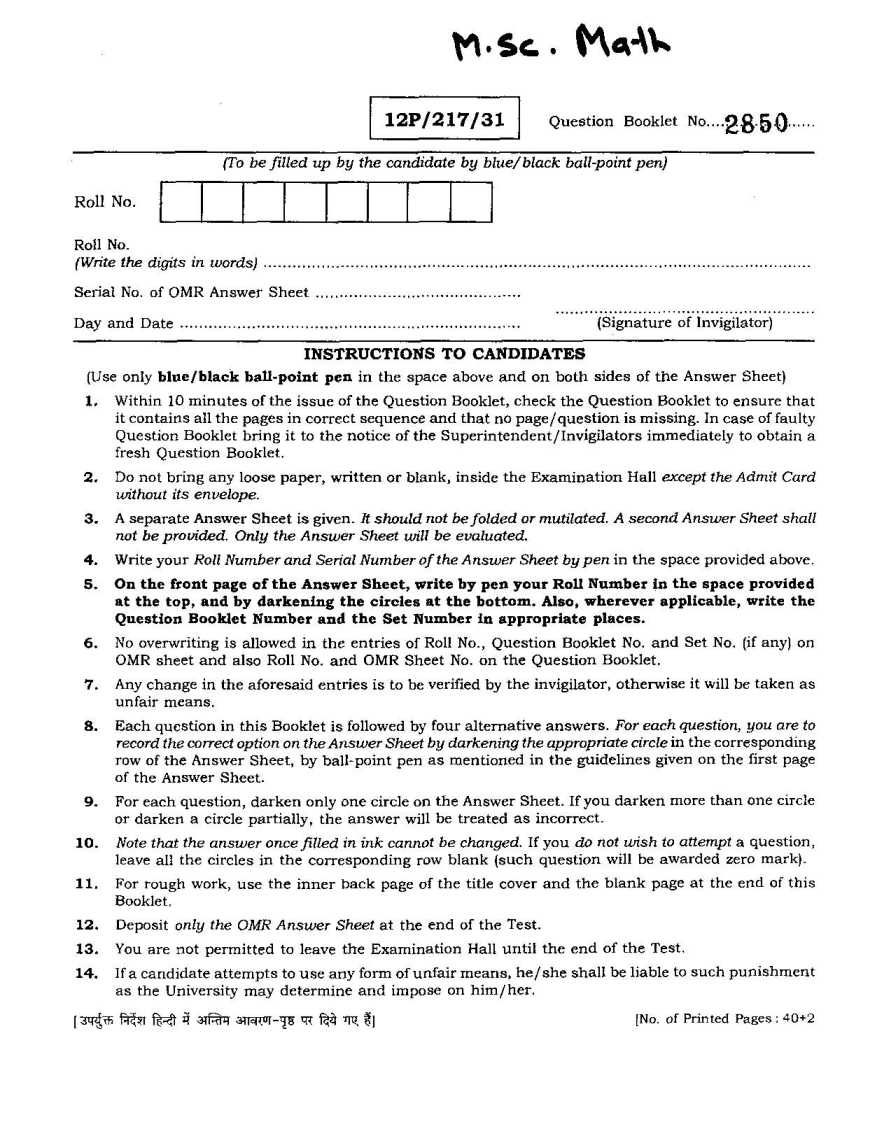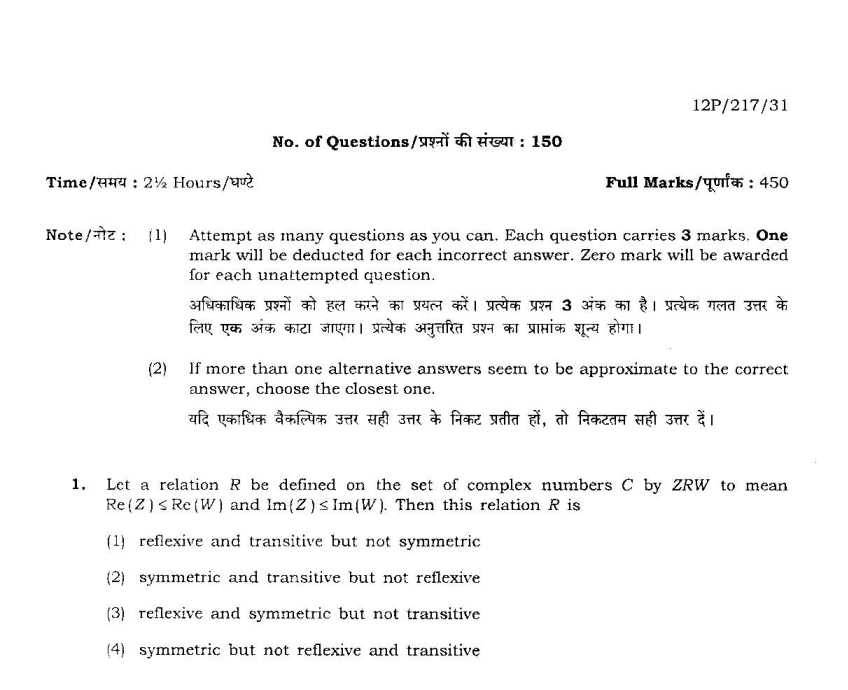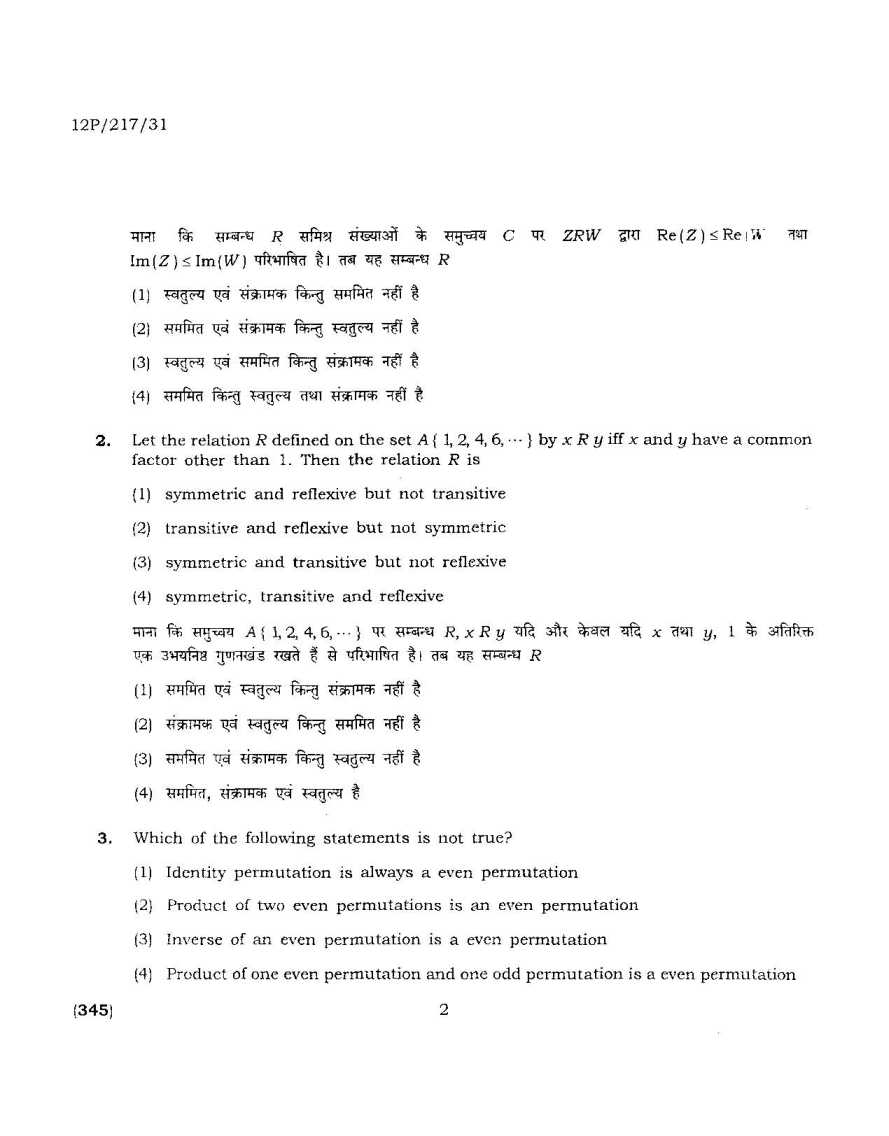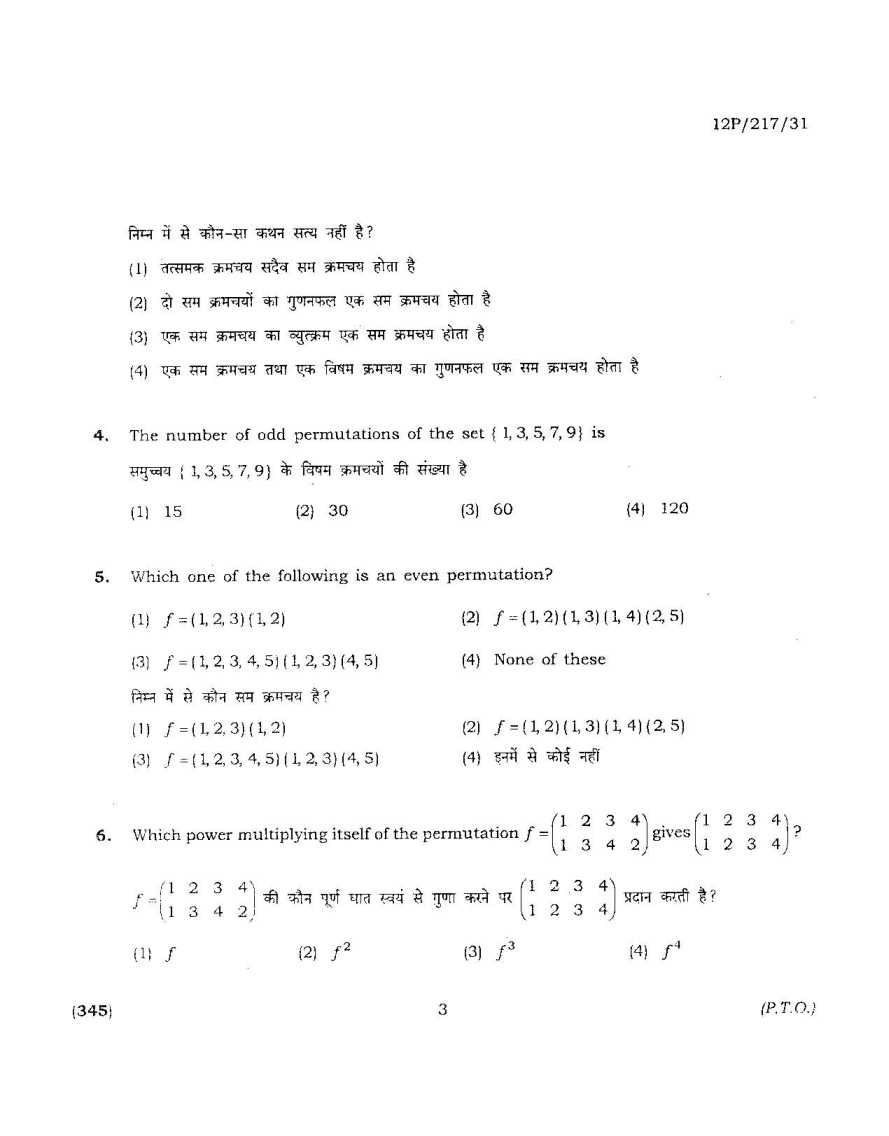|
#2
April 6th, 2017, 03:04 PM
| |||
| |||
| Re: BHU MSC Entrance Exam Model Paper
As you Asking for the Question Paper of the MSc Maths Entrance Exam of the Baneas Hindu University the4 Question Paper is given below Let a relation R be defined on the set of complex numbers C by ZRW to mean Rc(Z)sRc(W) and Im{Z)::;Im(W). Then this relation R is (1) reflexive and transitive but not symmetric (2) symmetric and transitive but not reflexive (3) reflexive and symmetric but not transitive (4) symmetric but not reflexive and transitive 2. Let the relation R defined on the set A { 1, 2, 4, 6, ... } by x R Y iff x and y have a common factor other than 1. Then the relation R is (1) symmetric and reflexive but not transitive (2) transitive and reflexive but not symmetric (3) symmetric and transitive but not reflexive Which of the following statements is not true? (1) Identity permutation is always a even permutation (2) Product of two even permutations is an even permutation (3) Inverse of an even permutation is a even permutation (4) Product of one even permutation and one odd permutation is a even permutation Which of the following statements is not true? (1) Identity permutation is always a even permutation (2) Product of two even permutations is an even permutation (3) Inverse of an even permutation is a even permutation (4) Product of one even permutation and one odd permutation is a even permutation Solution of 235x =;: 54 (mod 7) is (I) x ~ 12 (mod 7) (3) x~5(mod7) (2) x ~3 (mod 7) (4) x. 4 (mod 7) Order of a cyclic group and order of its generating element (I) are equal (2) order of first is greater than order of second (3) order of first is less than order of second (4) order of first is multiple of order of second Order of a cyclic group and order of its generating element (I) are equal (2) order of first is greater than order of second (3) order of first is less than order of second (4) order of first is multiple of order of second Cayley theorem informs that any group originally is (1) a Abelian group (2) transformation group (3) subgroup of transformation group (4) symmetric group Which of the following rings is not a integral domain? (1) (1, +, e), where I is set of integers (2) (R, '1-, e), where R is sct of real numbers (3) (M, +, .. J, where 1ft 18 set Of 2)<: 2 07c7/'aces (4) (e, +, e), where C is set of complex numbers Follmving is thr; quofient field of integral domain { 0, L 2, 3, 4 (mod S)} 'lu;\ '"" "Rl \ 0, I, 2, 3, 4 ( mod 5)} q;r 'i1'l'm ~ t (1) {O,1,2,3,4} (2) (1, 2, 3, 41 (3) {2, 3, 4} (4) (<I} The characteristic roots of 8 real ske\v symmetric matrix are ( I ) all reals (3) all imaginary (2) all zeros (4) either all zeros or purely imaginary Rest of the Question Paper you may get from the below Attachement that is Free to Download BHU University MSc Maths Entrance Exam     For Any Query you may Contact to the Banaras Hindu University the Contact details Are given below Contact details : Banaras Hindu University Address: Ajagara, Banaras Hindu University Campus, Varanasi, Uttar Pradesh 221005 Phone: 0542 236 8558 |